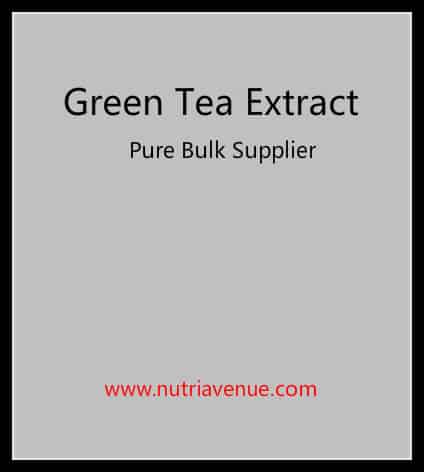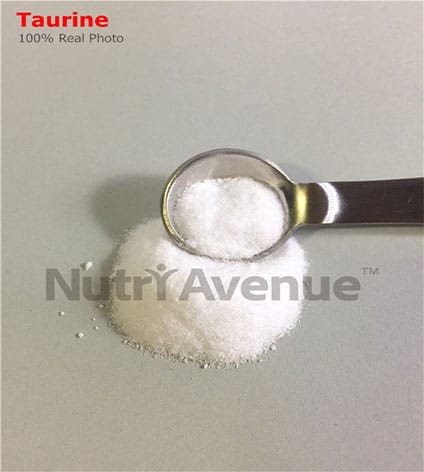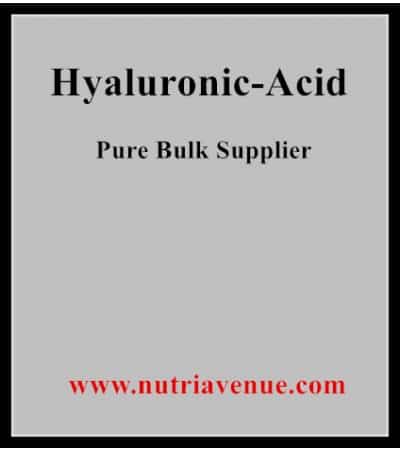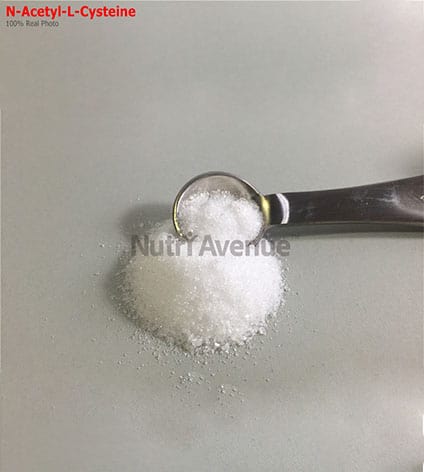What Is Green Tea Extract?
Green tea extract is a concentrated byproduct of the advantageous constituents present in the leaves of green tea. The consumption of green tea, obtained from the Camellia sinensis botanical species, has been a practice that has endured for centuries and is renowned for its advantageous effects on human health. The process of producing green tea extract involves the extraction of bioactive constituents, including polyphenols and catechins, from the leaves. It is achieved through diverse techniques such as steeping, liquid extraction, drying, and grinding.
The primary bioactive compounds in green tea extract are polyphenols, particularly a type called catechins. The most abundant and studied catechin in green tea extract is epigallocatechin gallate (EGCG). Catechins are potent antioxidants that have been linked to numerous health benefits. These substances aid in mitigating oxidative stress, diminishing inflammation, and safeguarding cells against harm induced by free radicals.
Green tea extract is available in various forms, including liquid extracts, capsules, powders, and skincare products. Its potential health-promoting properties make it a frequently used dietary supplement.
The specific compositions of Green Tea Extract can vary depending on the extraction method, processing, and source. Here are the CAS Number, Molecular Formula, and Molecular Weight of some of the essential bioactive compounds commonly found in Green Tea Extract.
| CAS Number | Epigallocatechin gallate (EGCG): 989-51-5 Epicatechin gallate (ECG): 1257-08-5 Epigallocatechin (EGC): 970-74-1 Epicatechin (EC): 490-46-0 Catechin (C): 154-23-4 |
| Molecular Formula | Epigallocatechin gallate (EGCG): C22H18O11 Epicatechin gallate (ECG): C22H18O10 Epigallocatechin (EGC): C15H14O7 Epicatechin (EC): C15H14O6 Catechin (C): C15H14O6 |
| Molecular Weight | Epigallocatechin gallate (EGCG): 458.37 g/mol Epicatechin gallate (ECG): 442.37 g/mol Epigallocatechin (EGC): 306.27 g/mol Epicatechin (EC): 290.27 g/mol Catechin (C): 290.27 g/mol |
Common Bulk Green Tea Extract Powder Specifications
Green Tea Extract Powder is available in various purities, and the desired purity can depend on the specific application and requirements. Here are some possible purities for Green Tea Extract Powder:
- Green Tea Extract contains 50% EGCG (Epigallocatechin gallate)
- Green Tea Extract contains 90% polyphenol catechins and 50% EGCG
- Green Tea Extract 40% polyphenols
| Type | Plant Extract |
| Appearance | Fine powder |
| Content | ≥ 98% |
| Purity | ≥ 95% |
| Particle Size | 80-200 mesh |
| Other Ingredient | None |
| Certifications | GMP, ISO |
| Solvent | Water extraction |
| Water Content | ≤ 5% |
| Test Method | HPLC, UV-Vis |
| MOQ (minimum order quantity) | 1kg |
| Sample | Available (10-20g/bag) |
| OEM Service | Available, such as capsules, tablets, pills, etc. |
| ODM Service | Available |
| Private Label | Available |
| Contract Manufacturing | Available |
What Is The Active Ingredient In Green Tea Extract?
Catechins, a group of compounds, are identified as the active ingredient in green tea extract. Catechins belong to the class of flavonoids, which are plant-derived compounds that possess antioxidative characteristics. The most abundant and studied catechin in green tea extract is epigallocatechin gallate (EGCG), although other catechins like epicatechin, epicatechin gallate, and epigallocatechin are also present in varying amounts.
Catechins are responsible for many health benefits of green tea extract. The entities in question exhibit robust antioxidant properties, thereby aiding in mitigating harmful free radicals within the organism and safeguarding cellular structures from oxidative harm. This antioxidant activity is believed to be responsible for many potential health-promoting effects of green tea extract, including its anti-inflammatory, anticancer, and cardiovascular benefits.
EGCG, in particular, has received considerable attention due to its potent antioxidant and health-promoting properties. Numerous studies have investigated its potential benefits for various health conditions, including heart disease, obesity, cancer, and cognitive function. However, it’s important to note that the overall health benefits of green tea extract are likely due to the combined action of multiple compounds working synergistically.
In addition to catechins, green tea extract contains other bioactive components such as caffeine, theanine, and various vitamins and minerals. These compounds may contribute to the overall effects of green tea extract on health and well-being. However, catechins, particularly EGCG, are considered the primary active ingredients responsible for many of its beneficial properties.
Notably, the precise configuration and proportion of catechins present in green tea extract may fluctuate based on various factors, including the caliber of tea leaves, cultivation circumstances, processing procedures, and extraction methodologies employed to generate the extract. Therefore, choosing a reputable source of green tea extract is essential to ensure a consistent and reliable supply of beneficial catechins.
What Is The Source Of Green Tea Extract?
The extraction of green tea is obtained from the foliage of the Camellia sinensis plant, specifically from the green tea strain. The evergreen shrub Camellia sinensis is indigenous to East Asia, encompassing nations such as China, Japan, and India. The plant is grown in diverse geographical locations across the globe primarily for its foliage, which yields a variety of tea variants.
Green tea is produced by harvesting and processing the leaves of the Camellia sinensis plant. Unlike other types of tea, such as black tea or oolong tea, green tea undergoes minimal oxidation during processing. This minimal oxidation helps preserve the natural compounds in the leaves, including catechins, the primary active ingredients in green tea extract.
The specific growing conditions, cultivation practices, and processing methods can influence the quality and composition of the tea leaves, affecting the quality of the green tea extract. Factors such as the cultivation region, altitude, soil quality, and climate can contribute to the leaves’ flavor profile and chemical composition.
To create green tea extract, the leaves are typically subjected to an extraction process involving the bioactive compounds from the leaves. Various extraction methods can be used, including steeping the leaves in a solvent, such as water or alcohol, or using more advanced techniques like supercritical fluid extraction. The goal is to extract beneficial compounds, including catechins and other polyphenols, from the leaves while minimizing the extraction of unwanted components.
Following the extraction process, the resultant extract in either liquid or solid form is subjected to additional processing and concentration to produce a standardized variant of green tea extract. This standardized extract can be utilized in diverse applications such as nutritional foods, supplements, and skincare products.
More Information
What are the benefits of green tea extract?
The high concentration of catechins and other bioactive compounds in green tea extract may provide numerous health advantages. The consumption of green tea extract has been linked to several advantageous outcomes.
- Antioxidant activity: The extract of green tea is a highly effective reservoir of antioxidants, predominantly comprising catechins such as epigallocatechin gallate (EGCG). Antioxidants aid in safeguarding cells against oxidative harm triggered by free radicals, potentially leading to age-related ailments and chronic conditions.
- Weight management: Green tea extract has been studied for its potential to support weight loss and weight management. It may help boost metabolism and increase fat oxidation, aiding in calorie burning and fat reduction. Notably, green tea extract should be accompanied by a well-balanced diet and consistent physical activity to attain the most favorable outcomes.
- Heart health: Some research suggests that green tea extract may benefit cardiovascular health. It may lower LDL (harmful) cholesterol levels, reduce blood pressure, and improve overall heart function. Green tea extract’s antioxidant and anti-inflammatory properties are believed to contribute to these cardiovascular benefits.
- Brain function: The consumption of green tea extract containing catechins has been linked to enhancements in cognitive abilities such as attention, memory, and overall cognitive function. It is plausible that they possess neuroprotective characteristics, which could potentially mitigate the likelihood of neurodegenerative ailments such as Alzheimer’s and Parkinson’s.
- Anticancer properties: Green tea extract has been the subject of numerous studies exploring its potential anticancer effects. Green tea extract’s catechins have demonstrated the potential to impede cancer cell proliferation and mitigate the likelihood of specific cancer variants. Nevertheless, additional investigation is required to comprehensively comprehend the mechanisms and efficacy of green tea extract in preventing and treating cancer.
- Liver health: The consumption of green tea extract has been suggested to confer hepatoprotective benefits potentially. The potential of this substance to mitigate liver damage and enhance liver function in cases of liver injury and fatty liver disease has been the subject of investigation.
- Skin health: The skin may benefit from green tea extract’s antioxidant and anti-inflammatory properties. Incorporating this substance in skincare formulations has been reported to exhibit anti-inflammatory properties, soothe irritation, and safeguard against harmful environmental factors.
Where can you buy bulk Green Tea Extract powder online?
Are you looking to buy bulk Green Tea Extract powder online? Look no further than Nutri Avenue! We offer high-quality Green Tea Extract powder that’s perfect for your needs. With our reliable sourcing, stringent quality standards, and competitive pricing, Nutri Avenue is your one-stop shop for all Green Tea Extract powder requirements. Take advantage of it, visit Nutri Avenue’s official website today!
What Is Green Tea Powder Manufacturing Process?
The manufacturing process of green tea powder, also known as matcha, involves several steps. Here is a general overview of the traditional method.

FAQs
The best form of green tea can vary depending on personal preference. Loose-leaf green tea or tea bags are popular, as they allow for steeping and consuming the brewed tea. Matcha powder, derived from the finely ground leaves of green tea, is also held in high esteem.
Green tea extract contains caffeine naturally. While caffeine can temporarily boost energy and focus, green tea extract offers additional health benefits due to its antioxidant content. The selection between the options mentioned above is contingent upon each individual’s distinct requirements and inclinations.
The compound known as EGCG, or epigallocatechin gallate, is predominantly present in green tea. However, its concentration may fluctuate due to several factors, such as the particular tea variety, growing conditions, and processing techniques. Although EGCG is present in most green teas, the concentrations of this compound may vary.
The extraction of green tea originates from the foliage of the Camellia sinensis plant and encompasses diverse bioactive constituents, such as EGCG. In contrast, EGCG denotes a distinct catechin variant that can be discovered in green tea and is deemed as one of its essential advantageous constituents.
Yes, green tea extract powder is typically water-soluble. It means that it can dissolve in water and form a solution. Incorporating green tea extract powder into various liquid-based products, such as beverages, smoothies, or skincare formulations, is convenient. The water solubility of green tea extract powder allows for easy consumption and absorption of its beneficial compounds.
No, green tea powder extract and Matcha powder are not the same. Matcha powder is a specific type of green tea powder made from shade-grown tea leaves, while green tea powder extract refers to powdered extracts derived from green tea leaves. Cultivation, processing methods, flavor, color, and traditional usage differ.
The regulatory agency known as the U.S. FDA does not provide explicit endorsement or rejection of dietary supplements such as green tea extract. Nevertheless, it is imperative for producers and suppliers of nutritional supplements, such as green tea extract, to comply with the FDA’s particular regulations and quality criteria. It is essential to select products from established brands and seek guidance from a healthcare practitioner before incorporating any nutritional supplements into one’s regimen.










